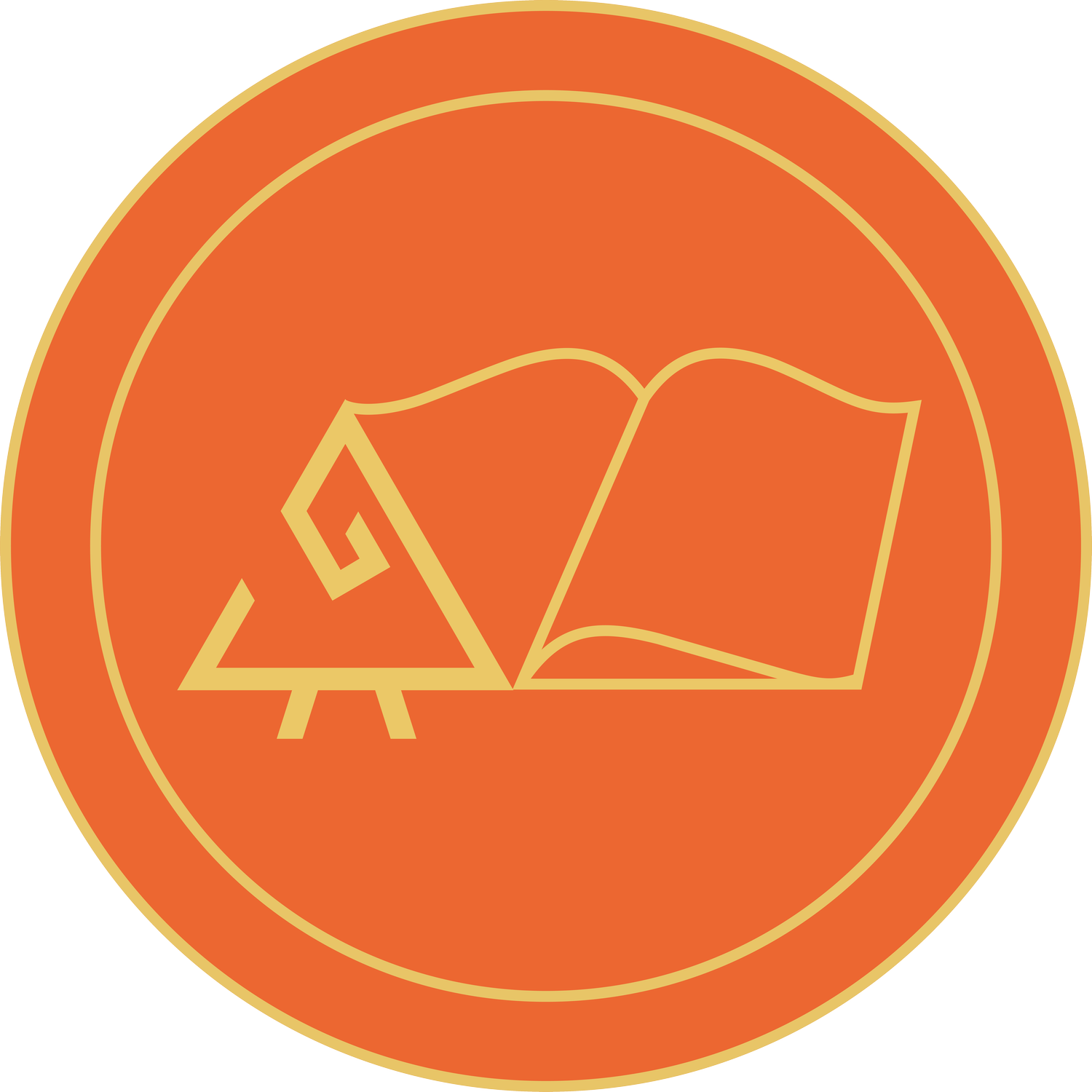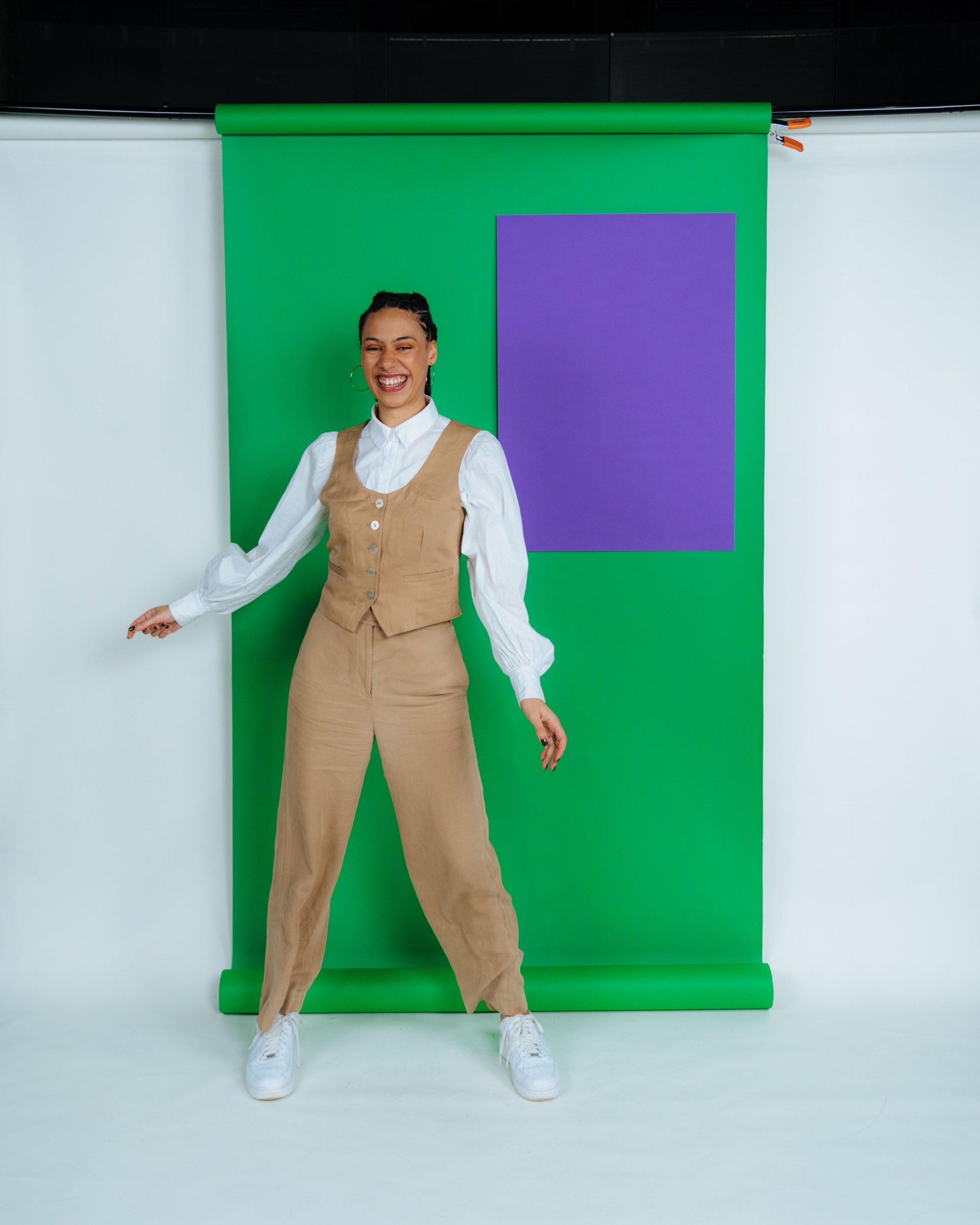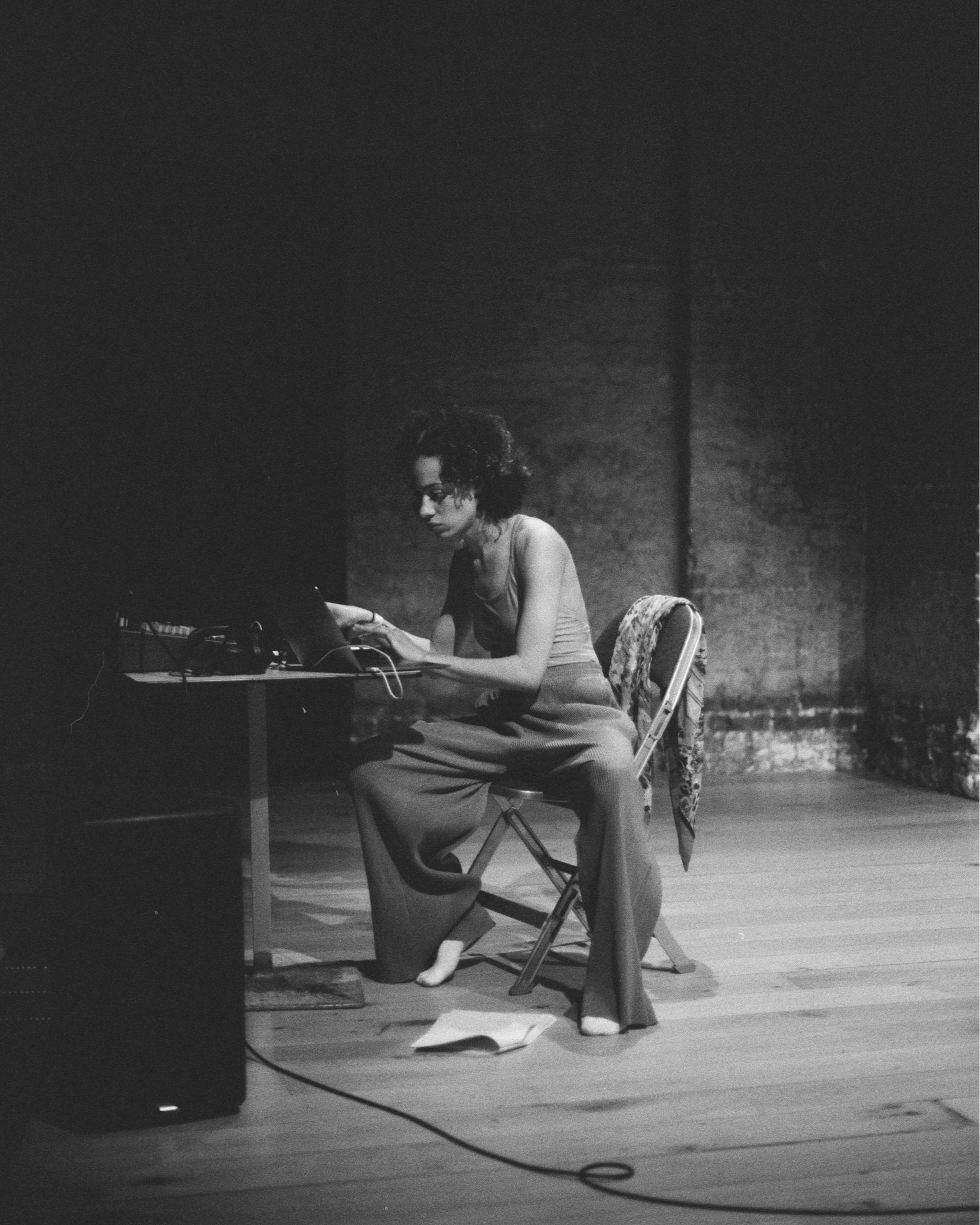Desire, Friendship and Creativity with Esme Allman
As part of The Last Word Festival at The Roundhouse, Resident Artist Esme Allman showcased ‘Delectably Red’ - a one woman poetry performance piece that explores the desires of black women occupying lives in peripheral places and spaces. Poet, writer, theatre-maker and facilitator, this multidisciplinary artist is making waves in London’s cultural scene. Allman’s work has also appeared at the Barbican Centre, English Heritage and the ICA, BBC Radio 3 and BBC Radio 6. After watching the empowering work in progress, we sat down with Allman to explore her process of creating a daring piece of new work that holds space for female sexuality, friendship and creativity.
Image: Helen Murray
Esme - thank you for sharing your gifts and these stories with us! Let’s dive straight into your piece: at the beginning of your performance, you projected quotes from Jasmine Sullivan, Solange Knowles and Saidiya Hartman onto the walls of The Roundhouse. Can you share more about the significance of these people and their work for you.
That’s the beauty of having a ‘work in progress’ as you can be flexible with what elements can be used. I’ll start with Solange - that’s the quote and song that stood at the top of the piece - I love the sense of not being a singular expression of yourself, as there’s too much to be contained in one version… Especially given the show that I was doing, there were performance elements, acting and poetry, dance and movement; I also used sound, lighting, props and moments that encapsulate theatre. From a personal perspective, there is something about that quote that feels expansive. Who do I want to be? Who do I want to create? So often, particularly in the UK, you’re occupying spaces that have slightly archaic, limited notions on who you should be and what you can do. Something that’s really exciting about being a young person at the moment and creating, is that we are forced into conditions where we are making work happen in whatever way possible, and embracing an interdisciplinary approach which I really enjoy.
Saidiya Hartman is a Professor of English, she wrote a gorgeous text called Wayward Lives, Beautiful Experiments and uses a broad notion of critical fabulation where she challenges the structural positionality of history writing - what does it mean to write effectively into history, and who is here to tell me that this is right or wrong? History is always going to be subjective, and lend itself to the powers that be - specifically around white supremacy and anti-blackness. There is beauty to be had in being too much - she tends to this idea of beauty in a caring and careful way. To Saidiya, nothing is too grotesque or ugly. You can show up; you’re not too much - push forward. I love her work - I have to slowly digest and read a page a day - like, that’s enough thinking for me!
The Jasmine Sullivan quote is a tongue and cheek one; sometimes I feel like we can gently, metaphorically, hold ourselves up and be like, ‘Girl, we need to get it together!’ I believe that line opens the album, and is a gorgeous exploration of black women, desire, sexuality and duality. I feel like ‘Heaux Tales’ gives a gorgeous platform to be an unfinished, rough cut version of yourself. I love it. We all make mistakes. I’m still here learning. We’re here.
Image: Caleb Azumah Nelson
One of the most captivating moments of your piece was when you suspended a moment in time through dance and music - we were transfixed. How long have you explored movement and used music, to control the heartbeat of a space to express yourself and to tell stories?
When I first proposed the piece as part of The Roundhouse Programme, I wanted to do something that didn’t feel limited to the typical three act story structure in theatre. I didn’t intend to perform - I actually proposed to be a writer and director - I didn’t want to get on stage. We had been sitting at home for two years, I felt like I was a converted introvert during lockdown! I made the decision to perform around November 2021, which terrified me. I had a desire to hone my craft as a performance poet and to stretch the ways in which you could deliver poetry to a live audience. So much of it was written as an intimate, private experience - being able to translate what was in my head was so much a part of my creative process.
I also got gifted my decks. I spent last summer with my friend, going between skating and playing around with decks and found so much freedom… It was like maths mixed with music, and it was such a humbling experience. I mean, I pray for my neighbours because they have to really listen to me mess up - it’s not cute! But, when it works, it works.
After Christmas, I was working full-time and freelancing; I felt depleted, and felt like I wanted to go to dance classes. I hadn’t danced since I was a teenager, around 7-8 years ago. I was quite scared to put my phone away and to do something that challenged me, but equally ready for more fun. I’m now dancing 3-4 times a week. I always wanted to put movement in the piece - whilst also leaving room to fail. It felt like a waste of an opportunity to just do one thing, so I was in a head space thinking, ‘How can I test the bounds of how to keep people engaged? How do I keep myself engaged?’ I was up there for an hour, on my own; I knew that if I lost interest, my audience would as well. That’s why it felt good to bring more of myself and my creativity.
You looked effortlessly powerful whilst performing. I loved your embodiment of different women around the red table. Eva… Pamela… Scarlet… Even Amanza! Tell me about these different representations, why you chose them and their significance.
I think a big part of how I create is making sure that there is a sense of humour. It’s nice to have a sense of play and to connect with my audience - it’s as if you’re in on the same secret as I am. It presents an interesting dynamic between myself and the watcher.
The characters that I explored became various facets of desire within black women, with the added influence that mainstream TV and music has had - as it’s so exportable. Black women have been easily used as tropes, and even if the representations have been playful, at the same time they have also forced us to form our own cultures of violence, which has bled into how I understand the world.
There’s something to be challenged here - where is the agency in these tropes of black women? I wanted to present a contrast in characters that people could recognise. As someone who is from London, the UK - the British characters were based on a coming of age - younger characters; it was nice to also present figures of popular cultures and explore how these representations have also influenced a movement into womanhood, this in-between-phase.
Image: Caleb Azumah Nelson
Your poetry performance piece explored the ‘desires of black women occupying lives in peripheral places and spaces’. There was a poignant moment when you performed experiences from childhood, and explored the challenge of navigating relationships at school and a sensual rite of passage. Can you share more about dramatising these experiences, and in reflection, why resurfacing these stories were significant?
That scene was loosely based on friendships that I had at school, who were dark skinned and were also navigating the school space. I was looking at the different ways that we were policed, particularly our sexuality, in a space where you have harsh uniform rules and where the onus is put on young girls to be the people who are responsible for potential or present sexual violence coming there way. What does that do? Where are the moments of freedom and innocence in those spaces? Retrospectively, it’s a shame. But, what I also remember is that dancing and singing were really important - a lot of the friendships that I had took place in a creative space. This is something that we could all share together.
Weaving the monologue together, I knew the structure that I wanted it to take. The parts that were set in the school were based on what I observed and remembered. The story between the character and the friend’s older brother were made up to weave back to the themes in a relatable, subtle way, where people could remember what it may have felt like to have had a crush, perhaps on someone a bit older… whether or not it was reciprocated, what did it feel like to try to navigate that blurry space and the sick feeling in the pit of your belly: is that excitement, is it nerves, what rules am I breaking? Where is the boundary? Where is the line?
Image: Caleb Azumah Nelson
How has your experience of being a Roundhouse Resident Artist been? We’d love to know what you’ve been up to and what you are looking forward to.
It’s been amazing - it was something that I was really keen to do throughout 2019/2020, and then the pandemic hit! I was so glad that The Roundhouse brought the programme back - it’s been such a joy. I think it’s been really beneficial for me - the programme has had music artists and performing arts artists, it's been really nice to work with the musicians, in terms of challenging me with how I use my voice and to explore, what feeling is there? What’s present? It’s been really good to have the support of The Roundhouse - it’s something that I feel proud of. Like, what, THE Roundhouse? It’s been really cute.
‘Delectably Red’ has been such a lovely process of confidence building - pursuing this piece, I’ve had 3-4 people around to support it, but it’s been pretty much me by myself. I think that it’s been really liberating. Reflecting on it, I know that I can pursue something that looks and sounds interesting, and know that I can pull it together.
I’ve been doing more freelance work which I’m excited about, more poetry commissions, more theatre making and directing. I’m still in a space of not really feeling like a performer; I like performing my own work and poetry, but the line of being an actor feels quite thin. Maybe there’s a space that I can occupy that caters to the specificity of the piece. I would love to have the resources to perform ‘Delectably Red’ again. I had so much fun the first time. I mean, I’ve caught myself thinking, ‘Why was I so resistant to this?’ I love it, I love it!
Read more about Esme Allman here.
To find out more about The Roundhouse Resident Artist Programme, click here.




